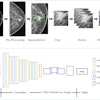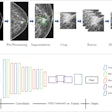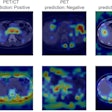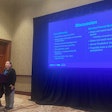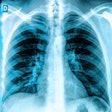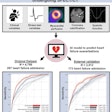
Saying the proposal was riddled with "errors" and "ambiguities," the Biden administration on April 16 torpedoed a plan proposed in the waning days of the Trump administration to eliminate 510(k) reviews for a range of medical products, including artificial intelligence (AI) software.
In a statement, the U.S. Department of Health and Human Services (HHS) and the U.S. Food and Drug Administration (FDA) said the proposal issued January 15 by the Trump administration to make some devices and software exempt from regulatory review was "published without adequate scientific support," and the notice itself was flawed.
The January 15 notice proposed to make permanent a number of regulatory changes introduced in April 2020 that were designed to provide regulatory relief to medical companies during the COVID-19 public health emergency. The FDA at that time had relaxed a number of its regulatory requirements in an effort to help clinicians and vendors respond more quickly to the pandemic.
For example, the FDA temporarily lifted the need for additional review of modifications made to medical imaging devices that had already received 510(k) clearance, such as a portable x-ray machine that might be modified to operate behind glass to reduce infection risk to medical personnel.
But the January 15 proposal went even further, proposing to eliminate review requirements for broad classes of products, in particular artificial intelligence and computer-aided detection (CAD) software. Review requirements under the 510(k) pathway would be lifted for products ranging from CT lung CAD software to acoustic holography devices; even fluoroscopy systems and MRI coils would be exempted.
But many industry observers immediately questioned the wisdom of the proposal, with one Twitter user calling it "extremely dangerous and short-sighted," and saying it would lead to the use of "unregulated AI" in the clinical environment. The proposal also drew letters of opposition from radiology groups such as the RSNA, the American College of Radiology, and the Society for Imaging Informatics in Medicine.
The HHS and FDA said they decided to review the proposal after receiving "dozens of inquiries" that queried the agencies on errors and ambiguities in the proposal. In particular, the review was started on the recommendation of staff and leadership in the FDA's Center for Devices and Radiological Health, which identified issues with the plan and brought them to the new leadership of the HHS.
For example, comments about the proposal noted that it included errors such as mismatched product descriptions, product codes, and regulatory citations. Also, the proposal relied on adverse events reported to the FDA's Manufacturer and User Facility Device Experience (MAUDE) database to determine whether devices were safe enough to remove regulatory review. This approach could be inappropriate because adverse events may be underreported for some devices and may leave out other information on the risk of a product.
"Upon review, HHS and FDA have determined that the proposed exemptions in the January 15, 2021, Notice were published without adequate scientific support, that the Notice contained errors and ambiguities, and that the Notice is otherwise flawed," they wrote in the new statement.
Finally, the HHS and FDA noted that the January 15 proposal appears to have been generated without input from HHS or FDA staff. At the time, the original proposal was attributed to Alex Azar, who was HHS secretary from 2018 to 2021 -- with some observers speculating that the proposal was politically motivated. Azar was replaced by Xavier Becerra in January after Biden took office.
"We did not find evidence that HHS consulted with or otherwise involved FDA in its proposed exemption or the issuance of the January 15, 2021, Notice," they wrote. "It is particularly important that FDA have at least some level of involvement in this type of an action given the expertise needed in evaluating whether a submission under 510(k) of the [Food, Drug, and Cosmetic Act] is necessary to assure the safety and effectiveness of a device."


